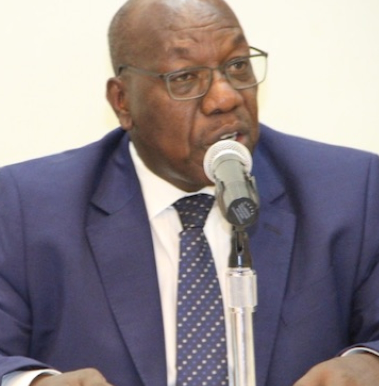The Reconstituted Joint Monitoring and Evaluation Commission (RJMEC) has lauded the inauguration of the ad-hoc Judicial Reforms Committee (JRC) of the Republic of South Sudan saying it is another key milestone in the implementation of the Revitalized Peace Agreement.
Speaking at the official inauguration of the Committee in Juba on Thursday, July 28, 2022, RJMEC Interim Chairperson Maj. Gen. Charles Tai Gituai, said as a committee mandated to study and recommend appropriate judicial reforms to the transitional government, the work of the JRC will lay a firm foundation for the future of the Judiciary in the country.
“The Judiciary is an important third arm of government and an effective, independent, and impartial judiciary is sine quo non for lasting peace, stability, and democratization,” he said. “Despite the slow pace and delays in the implementation of the Peace Agreement generally, the launch of the JRC today is very timely. It comes on the heels of the enactment of the Constitution Making Process Bill by the Parliament and the ongoing National Constitutional Amendment Committee review of the National Elections Ac.”
“It also comes at a time when the RTGoNU is developing a roadmap for the implementation of all critical pending tasks towards credible elections at the end of the Transitional Period,” he added.
Gen. Gituai said he strongly believes that the RTGoNU will factor the work of the JRC into the roadmap and that they will be accorded sufficient time to execute their tasks.
“The JRC report and recommendations will be taken on board by the RTGoNU to ensure that the judiciary is reformed before the end of the Transitional Period,” he said. “We must all lend our support politically, technically, and of course financially for the JRC to do its work within the stipulated timelines.”
“I believe that the key reforms that will be recommended by the JRC, will get prioritized by the Revitalized Transitional National Legislative Assembly,” he added.
The JRC is chaired by Justice James Ogoola of Uganda and deputized by Justice Joyce Alouch of Kenya.
Relatedly, RJMEC praised the start of the review of the National Elections Act 2012 of South Sudan, one of the key legislations assigned to the National Constitutional Amendment Committee (NCAC), terming it as an important step for the successful conclusion of the Transitional Period of the peace agreement.
Speaking at the opening of the experts meeting on the electoral laws in Juba on Thursday, RJMEC Chief of Staff, Amb. Berhanu Kebede, said the review of the South Sudan National Elections Act is a demonstration that the Revitalized Peace Agreement is indeed on the right path to making a difference in the governance of the country.
“The conduct of credible, peaceful, free, fair, and democratic elections is the only endpoint of the Transition under the Revitalized Peace Agreement, and the review and amendment of the elections laws and the eventual reconstitution of the election commission are two key pre-requisites,” he added.
Chapter 1, Article 1.20.3 of the agreement provides that the National Elections Act 2012 be amended to conform to the terms of the Revitalized Peace Agreement.
“We trust that the experts assembled here today, parties and the various stakeholders to be engaged by the NCAC in this review process, will draft an election law that not only conforms to the Agreement but one that will ensure the conduct of a democratic, peaceful, free and fair elections and referenda in South Sudan,” he said.
According to RJMEC, the review and amendment of the electoral law will involve a participatory process, which includes convening expert and stakeholder forums, whose views will define the scope of the amendment to the electoral law.




